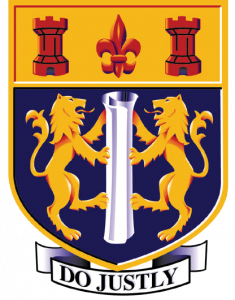
Level 1 Economics 101
ECO101 Course DescriptionTeacher in Charge: M. McIntosh.
Recommended Prior Learning10 Commerce may be helpful but no prior knowledge is needed as the course is designed to be open entry.
Economics 101
This is an introductory course for Business and Economics. Students will have half a year studying business operations in more depth, leading to application of their knowledge to create a full business plan for either a school market day or a market night.
Students will then spend time learning how societies and groups have attempted to solve the key economic problem of scarcity using economic concepts and models such as the Demand and Supply Model and the Circular Flow Model of Interdependence.
Course Overview
Term 1
Introduction to Business.
We take a look at the key areas of any business or organization:
Leadership and setting up a business
Human resources and organizational structure including recruitment processes.
Marketing including Market Research, Marketing Mix, SWOT analysis
Operations including Production Processes, and Supply Chains
Finance including Income Statements and Break Even Analysis.
Students will end the term with a visit to a local business to see their learning in action as well as form a business with other students, complete ideation and initial market research.
EOTC: Trade Me Field Trip.
Term 2
Business Planning and Action.
Students will work together to complete a full business plan for a product to be sold at either a school market day or market night in June.
Students will afterwards complete financial record keeping and a business reflection.
Introduction to Economics
Students will then be introduced to the key economic problem of scarcity and economic systems over time that have attempted to solve scarcity for different societies.
Students then take a closer look at a simple two sector model of the Economy studying Consumers and Demand followed by Firms and Supply.
EOTC: Market Day or Night. Approximately Mid June.
Term 3
Market Equilibrium
Students will put together their knowledge of Demand and Supply to look at how Markets are formed and the important role of price in preventing shortages and surpluses.
They will then look at the role of the Government Sector (City Council and Central Government) and how the government can and does interact in markets and the economy.
Students then take a look at further sectors of the economy including the role of the finance sector in safeguarding savings and facilitation of investment.
There will be a brief look at the Overseas Sector with why and how New Zealand trades goods and services with the rest of the world.
We finish the term with a look at non market ways of satisfying needs and wants including a look at the voluntary organisations in the wider Tawa region.
EOTC: Local trips to Community Organisation, City Council and or economic activity evidence gathering.
Board Game: Skint to Mint. Investment in Action.
Term 4
Financial Interdependence between Sectors of the Economy.
We put together our learning to study a five sector model of the economy.
We look at interdependent financial relationships, then use our model to examine the impact and flow on effects to different groups of major events like the 2023 Floods, Cycle Gabrielle or the 2021 Women's Rugby World Cup in New Zealand.
Assessment Information
External exam at the end of the year
NCEA Level 2 Business Studies 201, NCEA Level 2 Economics 201, NCEA Level 3 Business Studies 301, NCEA Level 3 Economics 301
A knowledge of Economics and Business can lead to almost any career choice as it gives you an understanding of how the economic world around you works as well as knowledge of how organizations function.
Career PathwaysEconomist, Retail Manager, Photographer, Animator/Digital Artist, Cook, Sales Representative, Accountant, Auditor, Accounts Officer, Actuary, Office Administrator, Finance Manager, Receptionist, Advertising Specialist, Copywriter, Sales and Marketing Manager, Survey Technician, Personal Trainer/Exercise Professional, Agricultural/Horticultural Scientist, Agricultural Technician, Agricultural/Horticultural Consultant, Mechanical Engineering Technician, Product Assembler, Heavy Truck Driver, Medical Physicist, Microbiologist, Dancer, Biochemist, Chiropractor, Medical Laboratory Scientist, Psychologist, Trainer, Pharmacist, Oral Health Therapist, Diagnostic Radiologist, Dietitian, Plumber, Gasfitter and Drainlayer, Driving Instructor, Early Childhood Teacher, Health and Safety Adviser, Veterinarian, Primary School Teacher, Kaiwhakaako Māori, Massage Therapist, Barrister, Legal Executive, Solicitor, Elected Government Representative
Contributions and Equipment/StationeryStudents may be required to contribute money or resources to a group business activity in term two.
A ruler and a calculator are required along with standard stationery.